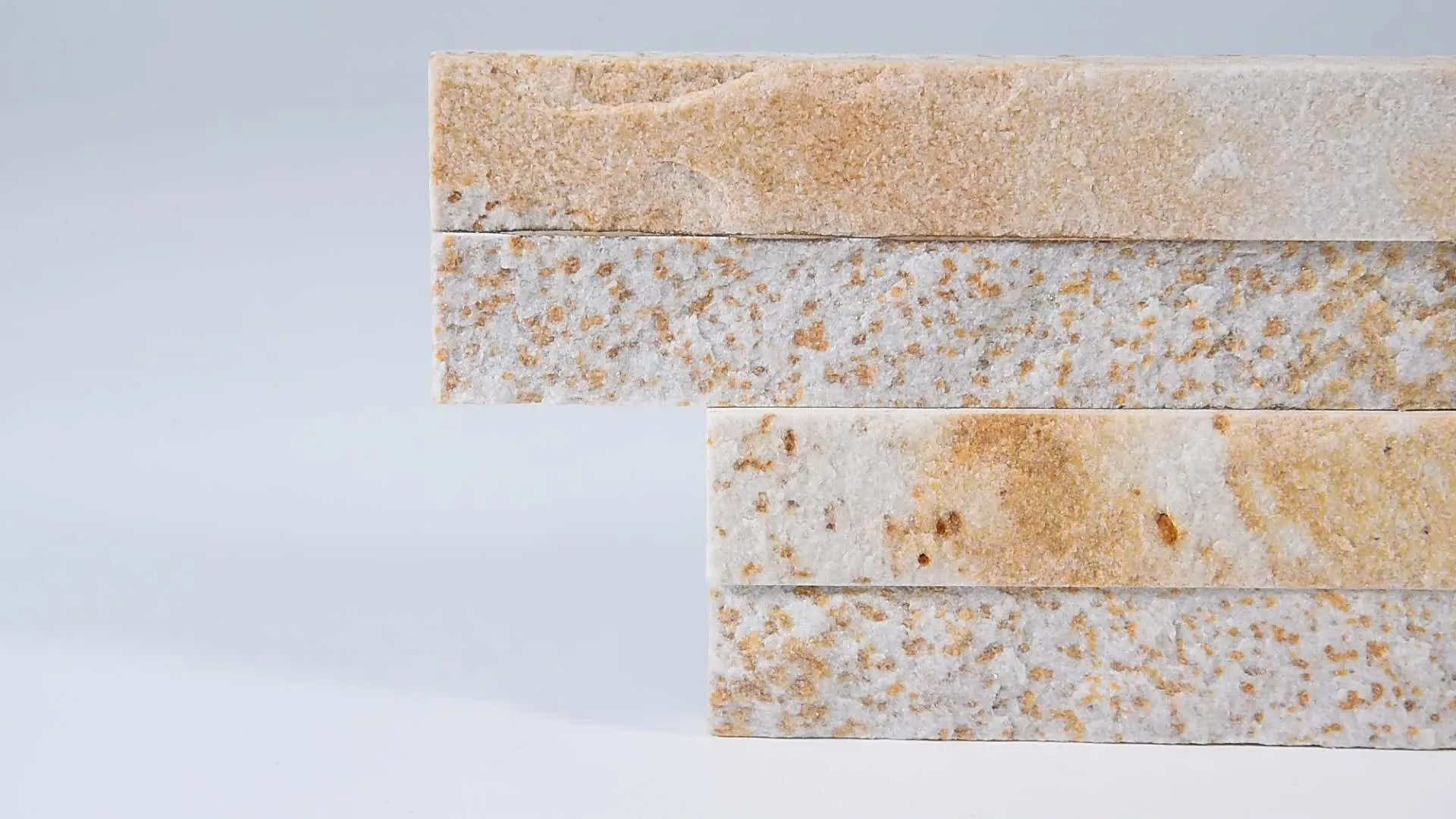Flexible stone is a new material in interior decoration that instantly won the hearts of designers. With its very high-performance characteristics, this type of finishing material provides amazing opportunities.
Flexible stone is a thin layer of sandstone transferred to a textile base and bonded with a special binder polymer solution.
It has excellent performance characteristics: it is flexible, easily rolls up (the thickness of the sandstone layer can be different — from 1 to 4 mm), tolerates temperature changes well, durable, several times lighter than ceramic tiles or other similar material, and moisture-resistant.
Due to the above properties, the scope of its application is quite wide.
- Flexible stone is most convenient for finishing spherical and more complex reliefs, up to sculptural compositions.
- It is easily cut with a knife but does not spoil and crumble.
- Besides, a drawing can be applied on flexible stone, getting the effect of frescoes and wall paintings.
- It is recommended for finishing not only internal surfaces but also external ones, i.e., facades, structures, columns.
- It is waterproof, so it is widely used for finishing saunas, baths, and swimming pools.
- Resistance to temperature drops allows one to use flexible stone for finishing fireplaces and heated walls.
- The material is absolutely eco-friendly and safe, which is confirmed by international standards.
- The warranty period is 35 years without risk to the appearance.

